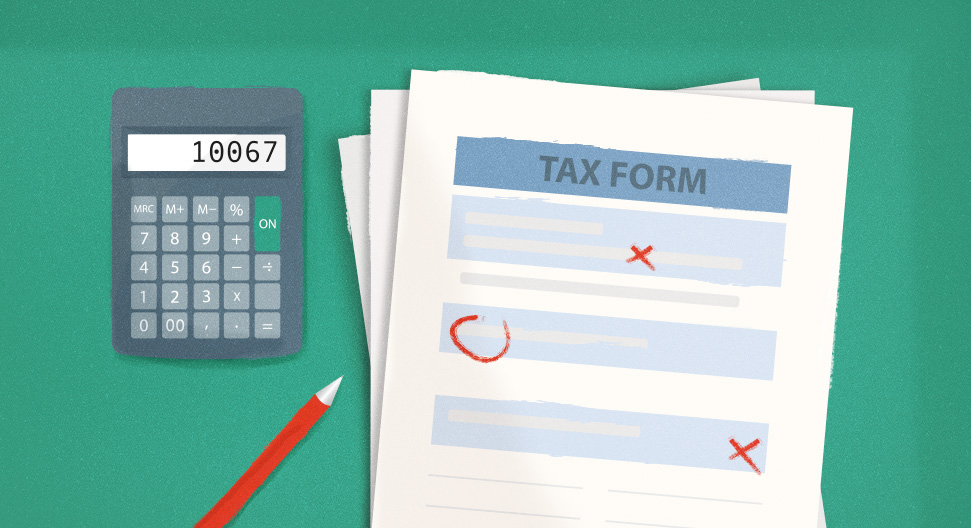Become an insider!
Get our latest payroll and small business articles sent straight to your inbox.
This post is written for American companies. If you are a Canadian business, please refer to Remitting Payroll Deductions – Penalties For Missing A Payment.
An IRS penalty is an unnecessary financial burden that’s completely avoidable.
We know how hard it is to run a small business. You can work through the night, over the weekend, and invest everything you have just to keep your business afloat. Once you begin generating revenue it can be tough to say goodbye to that truly hard earned cash.
Yes, there are business expenses you will need to invest in. Issuing your employee’s payroll, for example, is one of the unavoidable realities of expanding your business.
But there’s nothing worse than laying out the budget for your year only to have it turned upside down by an unexpected financial penalty from the government.
For small businesses especially, it’s imperative that taxes are filed correctly to avoid IRS payroll tax penalties.
The following is a list of potential IRS penalties that can catch small businesses off guard.
1. Filing a tax return late.
Your company will be considered late if you fail to submit your return before midnight on the day of your deadline.
If you are late, your company will immediately be assessed a 25% penalty. You will be required to pay the taxes you owe, plus the penalty, and any interest you accrue on the total amount.
Click here for Form 941, Employer’s Quarterly Federal Tax Return an click here for Form 940, Employer’s Annual Federal Unemployment (FUTA) Tax Return.
2. Using the incorrect deposit frequency.
Do you submit your payroll tax on a Next-Day, Semi-Weekly, Monthly or Annual basis?
If you are unsure, you could easily submit your taxes late. Having a clear understanding of what you owe the IRS, and when you need to pay is vital if you want to avoid unnecessary, and oftentimes crippling, financial penalties.
📝 You can read more about payroll tax deposit frequencies right here: What Every Employer Needs to Know About Payroll Tax Deposit Deadlines.
3. Your tax liabilities do not match your deposits.
This penalty can occur if you do not withhold enough of your income to cover what you owe in taxes.
A safe harbor can be use to ensure you do not underpay.
It’s always better to be safe than sorry when it comes to IRS penalties. You can withhold 90% of the current year’s taxes or you can withhold 100% of the tax amount you paid in the previous year.
4. 1099 or W-2 late filing penalty.
A W-2 form is a statement of an employee’s annual earnings and what taxes were withheld from his or her paycheck during the calendar year.
An independent contractor requires a 1099. The IRS and the contractor use this to correctly calculate the contractor’s tax liability. The IRS requires that you produce a 1099 for any employee that has over $600 worth of activity with your business.
You must file 1099s and W-2s by the end of February. Or, if you are e-filing, it is due at the end of March.
📝 Dig a little deeper and take A Closer Look at the Amounts on the W2 and 1099 Tax Forms.
5. Misclassification of workers (1099 or W2).
These penalties arise if you misclassify an employee as an independent contractor.
If you classify someone as an independent contractor, they must be:
- completely self-employed,
- work unsupervised,
- set their own schedule,
- and have their own office.
A contractor can only work for you on a short-term basis, and will do work for other businesses as well.
There is a financial benefit to misclassifying an employee, because the company does not have the pay employee benefits, or deduct taxes etc. For obvious reasons, the IRS does not take well to misclassified employees.
If the IRS takes a close look at your 1099s, and they find that the information is inconsistent with the qualifications of a contractor, your company will be severely penalized.
If you misclassify an employee you can be charged:
- 1.5% plus interest of the wages you did not withhold federal income tax on.
- The amount of the Federal Insurance Contributions Act (FICA) that you should have paid, and not only that, you can also be charged 40% of the FICA that your employee should have paid.
- A $100 fine per misclassified employee.
Misclassified workers can also sue for the benefits and overtime they should have been paid in the first place.
📝 Learn more about How to Classify Employees and Contractors.
6. Unspecified charity donations.
If your company donated something other than cash to a charity, you need to make it expressly clear what items you have donated, what condition the items were in, and you need an itemized receipt from the charity.
If you do not specify exactly what was donated, your company could incur a 25% penalty, as well as pay the same taxes you were trying to deduct in the first place. Any sneaky interest that has accumulated since filing will also cost you.
It should be noted that the IRS must also recognize the charity in order to avoid penalties.
It is the business owner’s responsibility.
Every business owner needs to be familiar with these rules and any payment deadlines, even if you outsource to a bookkeeper or an online payroll provider such as Wagepoint.
Being a business owner means that the IRS considers you personally liable for all payroll tax deposit deadlines. It’s not the assets of your bookkeeper that will be seized, but your own.
Do you handle your payroll and requisite taxes in-house?
Although this can work out just fine for some small businesses, payroll is extremely complicated and should be handled with caution and care.
As we have discussed throughout this post, there are a number of ways you can get into trouble with the IRS and this trouble can hinder your business growth.
This is by no means a full list of all possible IRS penalties that you can incur as a small business.
Yes, there are even more, but these are some of the most common culprits that are completely avoidable.
📝 Keep on reading – How to Guarantee a Smooth Payroll Year-End in 8 Easy Steps.












